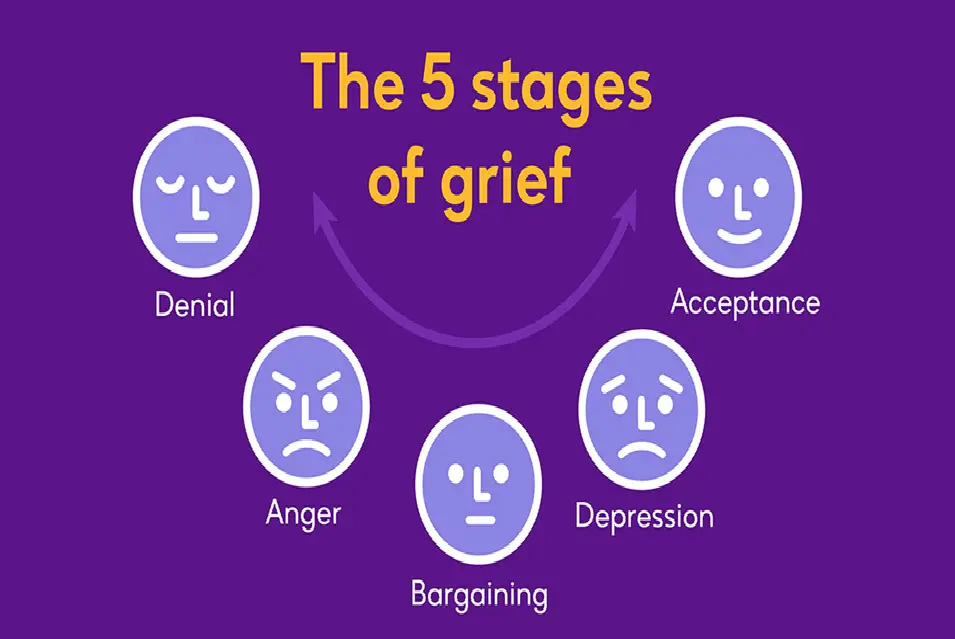Stages of Grief in Adults: Emotional Healing After Loss

Grief doesn’t send a calendar invite. It barges in, sometimes quietly, sometimes like a thunderstorm, and it changes everything. If you’re here, chances are you’ve felt that disruption. You’ve lost someone or something significant, and now you’re wondering why you feel like a stranger to yourself. That’s grief-talking. And you’re not alone.
For adults, grief can be especially disorienting. We’re expected to hold it all together, to show up for work, to support our children, to answer messages with some version of “I’m okay.” But inside, you may be unraveling. I know this feeling intimately. After losing my husband, I didn’t just grieve; I questioned everything: my identity, my future, and even my faith. That’s why I want to talk to you, not clinically, but personally, about the stages of grief in adults and what emotional healing truly involves.
What Are the Stages of Grief in Adults?
You’ve probably heard of the “five stages of grief.” Denial. Anger. Bargaining. Depression. Acceptance. These were introduced by psychiatrist Elisabeth Kübler-Ross, and they’ve become a kind of map for many trying to understand their loss. But here’s something I want you to know: grief is not a checklist.
You don’t pass through these stages in a straight line. Some days, you’ll bounce between them. On other days, you may feel like you’re stuck in one for weeks. That’s normal. As adults, we bring a lifetime of memories, responsibilities, and expectations into our grief, which makes it more layered and often more private.
Let’s break them down in the context of real adult experiences.
1. Denial: “This can’t be happening.”
Denial isn’t always dramatic. It’s often subtle like forgetting your loved one is gone and reaching for the phone to call them. It’s your mind protecting you, buffering the shock. You might still go to work, talk to people, and make dinner, but you feel like you’re watching someone else do it.
When my husband passed, I kept setting two coffee mugs on the counter. Not because I believed he’d walk through the door, but because, for a while, I couldn’t bear the sight of just one.
2. Anger: “Why me? Why now?”
Anger after loss isn’t always loud. It can be silent, simmering resentment. You may be angry at the doctors, at God, at your family, at yourself. You may even feel angry at the person who died.
I remember feeling furious that the world just kept spinning. That store is still open. That people still laughed. If you feel this too, let it surface. It’s not wrong. It’s part of your emotional healing.
3. Bargaining: “If only…”
This stage is full of “what-ifs.” If only we’d gone to the doctor sooner. If only I’d stayed longer that day. If only I’d said more or less.
Bargaining is the mind’s way of trying to rewrite the past. It gives us a sense of control in a situation where we have none. But this stage, though painful, often opens the door to deeper self-compassion. We begin to realize just how much we loved and how powerless we were to stop what happened.
4. Depression: “I can’t go on.”
This is where grief begins to sit in your bones. The weight feels endless. For adults, this stage can look like disinterest in things you once loved, difficulty focusing, or deep loneliness, even in a room full of people.
However, grief depression is not the same as clinical depression. It’s situational. It ebbs and flows. If you feel overwhelmed, please reach out. Whether it’s a counselor, a friend, or a grief group, you deserve support.
5. Acceptance: “This is my reality.”
Acceptance doesn’t mean “it’s okay.” It means “it is.” It’s the moment you begin to carry your grief rather than be consumed by it. You may start to remember your loved one with more smiles than tears. You may even begin to plan for the future.
For me, acceptance came quietly. One morning, I noticed I didn’t feel dread about the day ahead. I missed him terribly. But I also felt ready to help someone else through their own grief.
That’s why I do this work.
Healing Isn’t Linear, And It’s Never Finished
One of the most important things I can tell you is this: the stages of grief in adults are not destinations. They’re not a finish line you cross. Healing is more like waves; you learn how to stand when they come.
Grief will always be part of you. But so will strength. So will love. So, I will hope. And with time, space, and the right support, you can rediscover your life, changed but still deeply meaningful.
Ending Note
If you’re grieving, know this: you are not broken. You are human. And your grief is a reflection of your love. The stages of grief in adults are just guideposts, not rules. Let yourself move at your own pace.
I created Profoundly Changed not as a place for answers but for companionship. For truth-telling. For you.
Because healing begins when we stop trying to fix grief and start honoring it.




2 thoughts on “Stages of Grief in Adults: Emotional Healing After Loss”